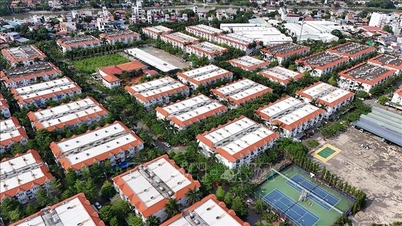When it took power in November 2021, Germany's Green-Red-Yellow coalition government set a target of building 400,000 new homes per year, with about 100,000 of these being welfare or social housing.
However, according to Ms. Werena Rosenke, CEO of the German Association for Homeless Support (BAG W), the German government will find it difficult to achieve the set target, even the number of 100,000 social housing units is quite modest because it is not enough to solve the shortage of affordable housing. BAG W is the national umbrella organization for emergency housing support services in Germany. According to the organization's most recent data, there will be 607,000 homeless people in Germany in 2022, of which about 50,000 will live on the streets.
Social housing means that landlords will receive government subsidies to rent apartments at fixed prices much lower than market rates. In addition to social housing, Ms. Rosenke said that 100,000 more affordable homes are needed. However, in recent years, only about 25,000 new affordable homes have been built, not enough to compensate for the shortage of housing.
The director of BAG W said homelessness is a serious social problem and that the huge shortage of affordable housing is the reason for it. Ms. Rosenke suggested some relatively less expensive measures to address homelessness, such as facilitating the purchase of homes from private owners or the housing market, or renovating emergency accommodation and converting it into social housing.
The German government has announced its intention to end homelessness in the country by 2030, with the help of an action plan to be approved by the cabinet in early 2024. However, it could take years for the plan to be implemented by Germany's 16 states, cities and municipalities.
VIET LE
Source


![[Photo] Keep your warehouse safe in all situations](https://vphoto.vietnam.vn/thumb/1200x675/vietnam/resource/IMAGE/2025/10/1/3eb4eceafe68497989865e7faa4e4d0e)
![[Photo] Hanoi morning of October 1: Prolonged flooding, people wade to work](https://vphoto.vietnam.vn/thumb/1200x675/vietnam/resource/IMAGE/2025/10/1/189be28938e3493fa26b2938efa2059e)



![[Photo] President of the Cuban National Assembly visits President Ho Chi Minh's Mausoleum](https://vphoto.vietnam.vn/thumb/1200x675/vietnam/resource/IMAGE/2025/10/1/39f1142310fc4dae9e3de4fcc9ac2ed0)





























































































Comment (0)